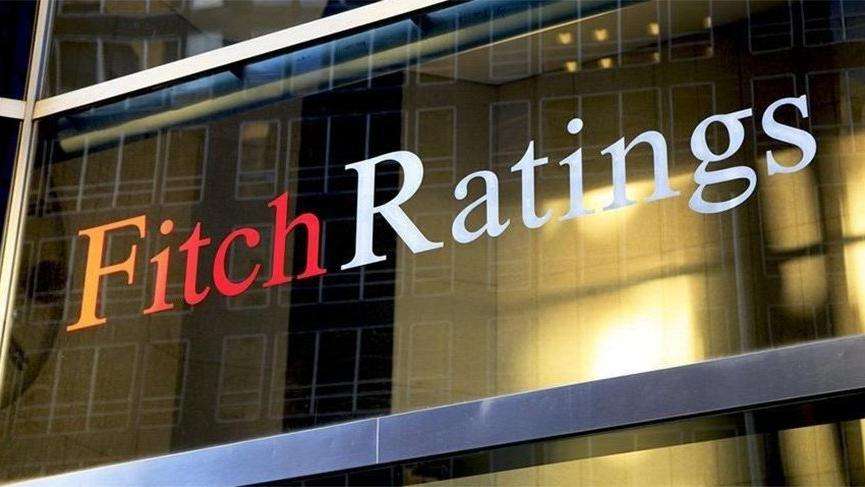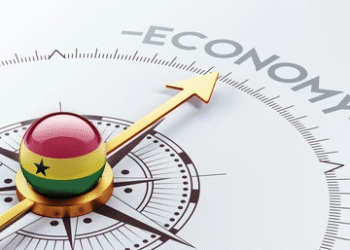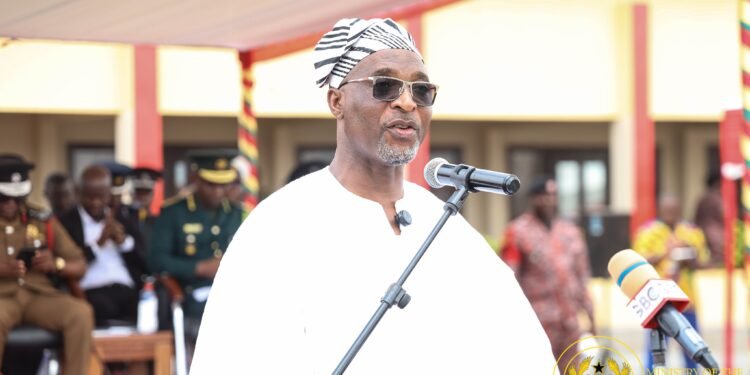International Rating Agency, Fitch, believes Ghana’s economy will rebound at a stronger pace this year as it revises the country’s GDP growth rate from 5.0% to 5.5% in its latest report.
According to Fitch, the new COVID variant, Omicron, is not likely to have any significant impact on the country’s economy this year, even though, the agency bemoans the low pace of vaccination in the country. Fitch estimates that Ghana’s GDP growth accelerated to 4.7% in 2021 from 0.4% in 2020.
“We forecast growth to increase further to 5.5% in 2022, as the industrial sectors, including oil, recover in line with global growth recovery. Ghana experienced three years of strong growth prior to 2020, largely driven by increasing oil production. We expect oil production to increase to 190 thousand barrels per day (kbpd) in 2022, from an estimated 160 kbpd in 2021, but to remain flat through 2023, which will limit Ghana’s medium-term growth potential.
“We expect post-pandemic growth recovery to keep GDP growth potential around 5%. The number of Covid-19 cases has increased dramatically in January, due to the Omicron wave, but hospitalizations and deaths remain below previous waves. Omicron is not likely to significantly impact 2022 growth. However, only 20% of Ghanaians have at least one vaccine dose. The low level of vaccination means that Covid-19 will continue to present risks to Ghana’s medium-term growth”.
Fitch
Price development
Fitch expects the country’s inflationary pressures to slow down a little this year but believes interest rates could go up further in the course of the year.
“We forecast average annual inflation to decelerate slightly to 9.0% in 2022 after averaging 9.8% in 2021. Global supply chain issues fed through to domestic inflation, as did higher energy prices. The Bank of Ghana raised its main policy rate by 100bp to 14.5% in November 2021, reversing the 100bp cut that came in May. We envisage additional rate hikes in 2022, which could further exacerbate the government’s domestic debt interest costs”.
Fitch
The Rating Agency in its January 2022 report, stated that Ghana’s external position will continue to be supported by a structural shift in the current account balance.
“We estimate that the current account deficit widened to 3.4% of GDP in 2021, from 3.2% in 2020, as imports recovered and exports remained flat on a nominal basis. An increase in gold and oil exports will help the current account deficit to narrow to 3.1% in 2022. Ghana’s current account deficit averaged 7% of GDP in the 10 years prior to 2017, when oil production reached significant levels”.
Fitch
Fitch also expects that the overall external balance will improve as FDI increases in 2022 and 2023. According to Fitch, higher FDI flows and lower fiscal financing needs will help reduce Ghana’s overall external indebtedness. Fitch forecasts net external debt to fall to 25% of GDP in 2022 and further in 2021. The cedi remained broadly stable throughout 2020 and 2021.
National debt
Commenting on the country’s debt position, Fitch noted that general government debt reached an estimated 83% of GDP at end-2021, including approximately 2% of GDP in debt held through the Energy Sector Levy Act special purpose vehicle.
“We forecast government debt to remain on an upward path through 2025, but expect debt to grow at a slower pace as the primary deficit narrows in 2022 and 2023. Debt affordability metrics will remain weak. Ghana’s debt constitutes 539% of government revenue, compared with the ‘B’ median of 325%. Interest payments were 44.6% of revenue in 2020 and the ratio is likely to continue rising through 2023, assuming a rising share of domestic debt in total debt in the absence of external financing options”.
Fitch
Given the slow pace of private sector credit growth and the weak asset quality environment, “we expect that the domestic lenders will be able to meet the government’s increased reliance on domestic debt issuance”. In 2020, the government placed GHS10 billion (2.7% of GDP) with the Bank of Ghana as an emergency measure. This measure could be repeated in response to additional shocks, but would carry risks to macroeconomic stability, the Rating Agency warned.
READ ALSO: Ignore Bloomberg Report! Ghanaian Economy Still Robust With Strong Fundamentals- Finance Ministry























